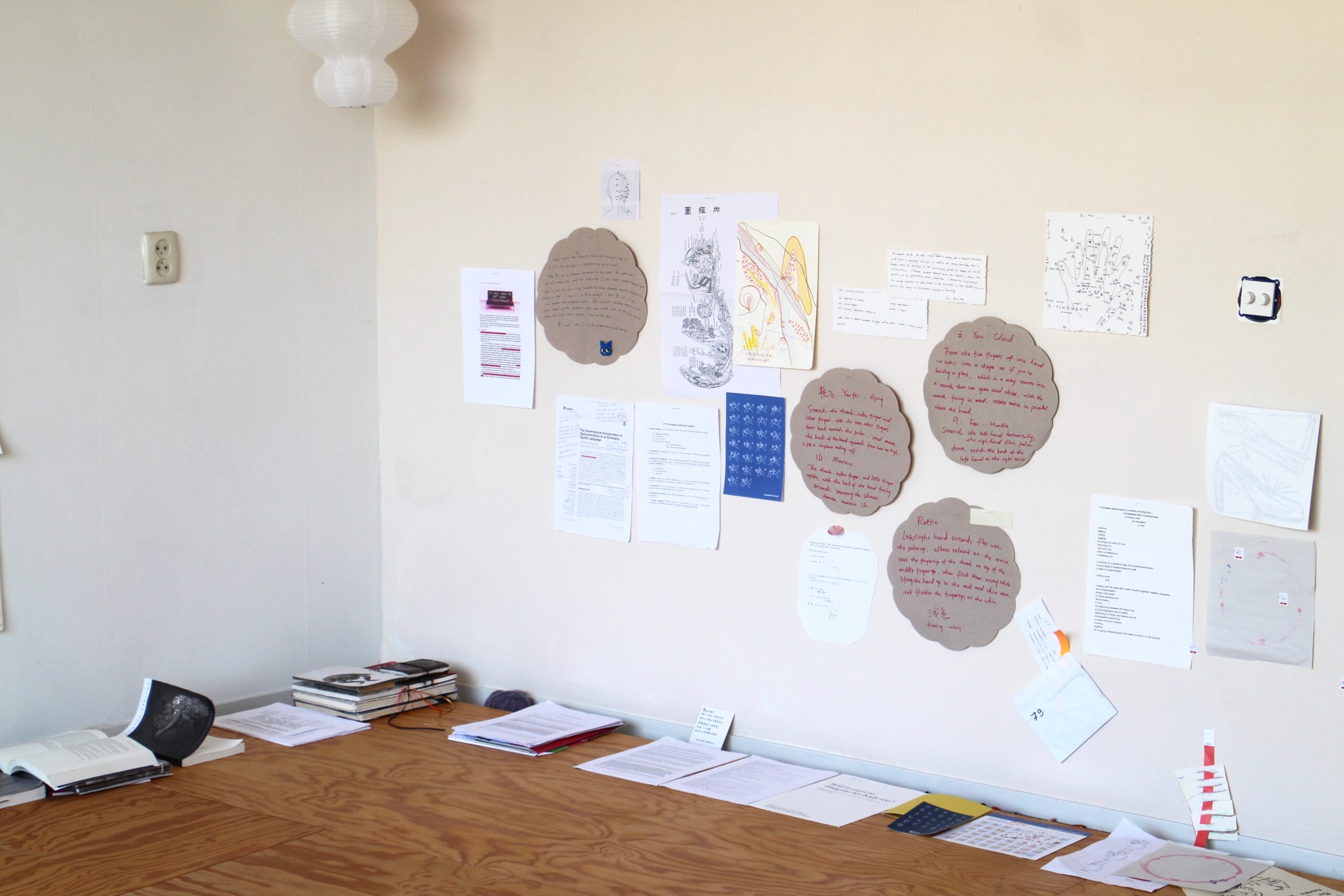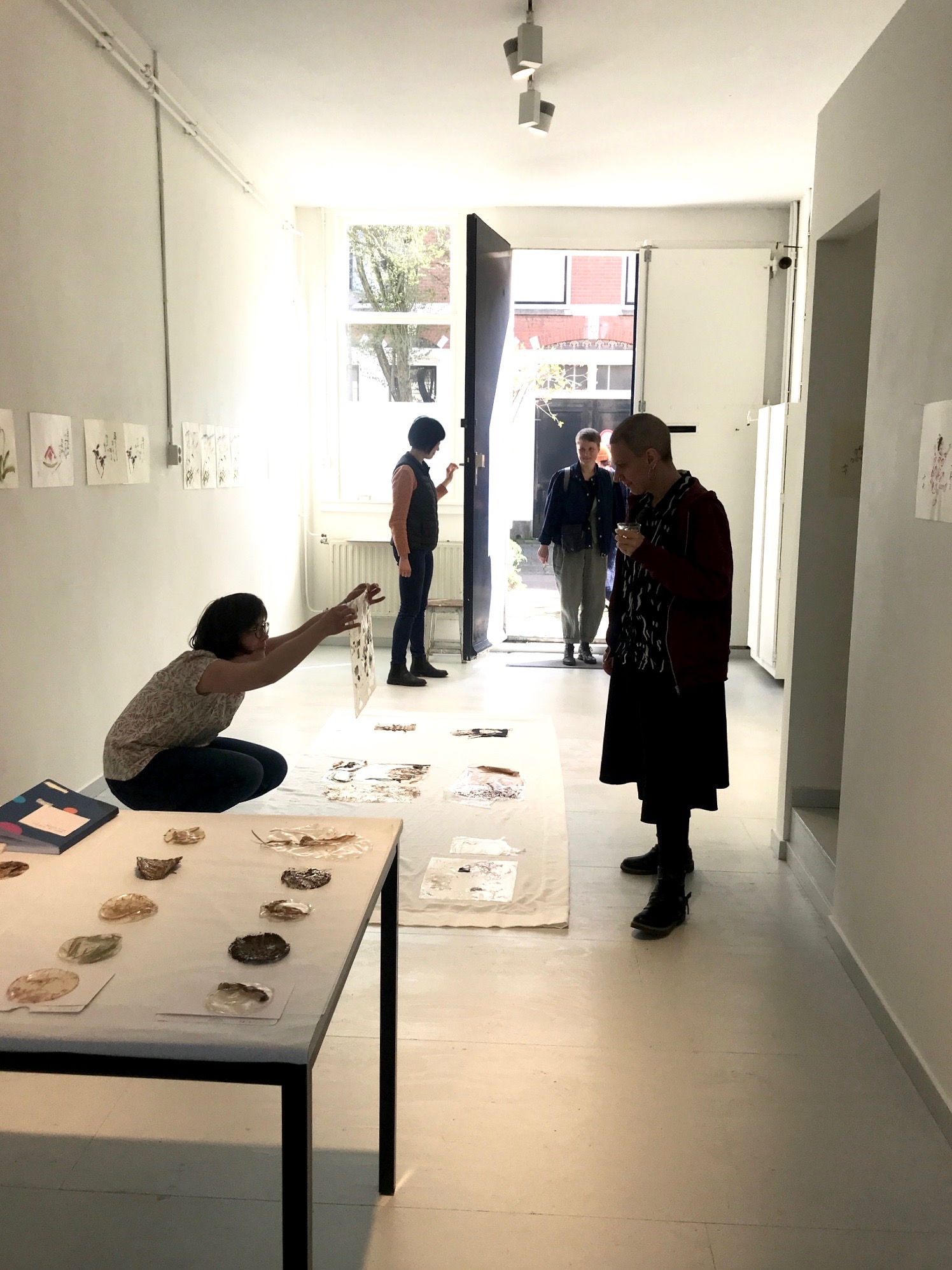
Jeroen Jacobs
Glücksstein
Texts
Jeroen Jacobs (Helmond, 1968) works with concrete; building material of modernism. But instead of its solidity and supporting function, Jacobs’ work shows the fluidity and unsteadiness of the material, a result of his research into the use of the mould and the interstice or in-between spaces.
“The notion of the mould has always challenged me to think about spaces, negative spaces, in-between spaces, also in my everyday surroundings. Previously, I would let the concrete flow in only partially defined forms. In more recent work I often use sand as a cast. Sand is as formless as fluid concrete. The mould is formed during and by the pouring of the concrete, pieces of plastic, concrete-filled rubber gloves serve as support. What I find interesting with these works is that I’m absent in the preparatory work of the moulds. It all happens in one moment.”
For the works on view, and inspired by ancient Chinese philosopher’s stones – to be found in the collection of the Kröller-Müllermuseum, for instance- Jeroen Jacobs used old bricks he found in his Berlin allotment. He added fluid concrete to melt the old with the new, the found with the intervention. These sculptures are displayed on support bases that are suggestive of furniture.
Glücksstein evokes myriad associations, between architecture, nature, sculpture and interior design. By placing the Glücksteine on bases that remind of furniture, they appear like protectors of the home.
As such, this exhibition also touches upon the estranging situation in which we have found ourselves since March: the home that has turned political. The place where one has to stay put and isolated and that, as a makeshift workspace has suddenly become of crucial economic importance. The home that equals quarantine can definitely use some fortune; some Glück.
Jeroen Jacobs (Helmond, 1968) graduated from de Ateliers in 1995. Since 1997 he lives and works in Berlin. His public work, “Blauwe Maandag” (“Blue Monday”), commissioned by SKOR and Stichting Curasmus, can be seen in Hulst, the Netherlands.

